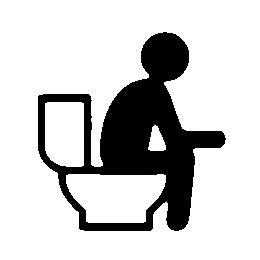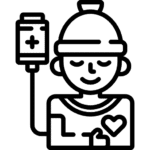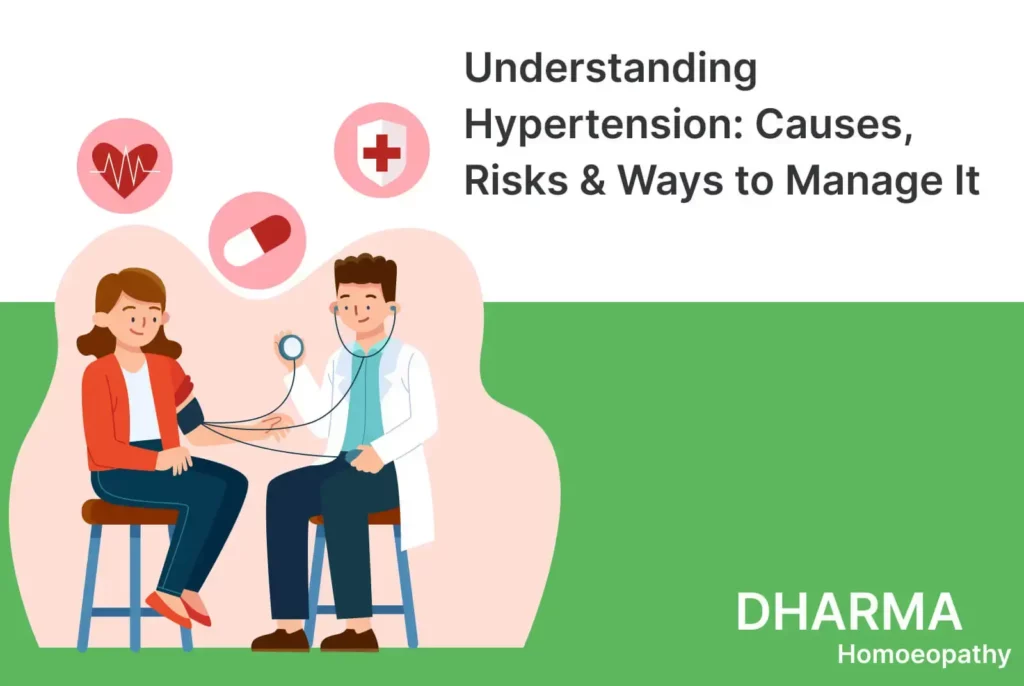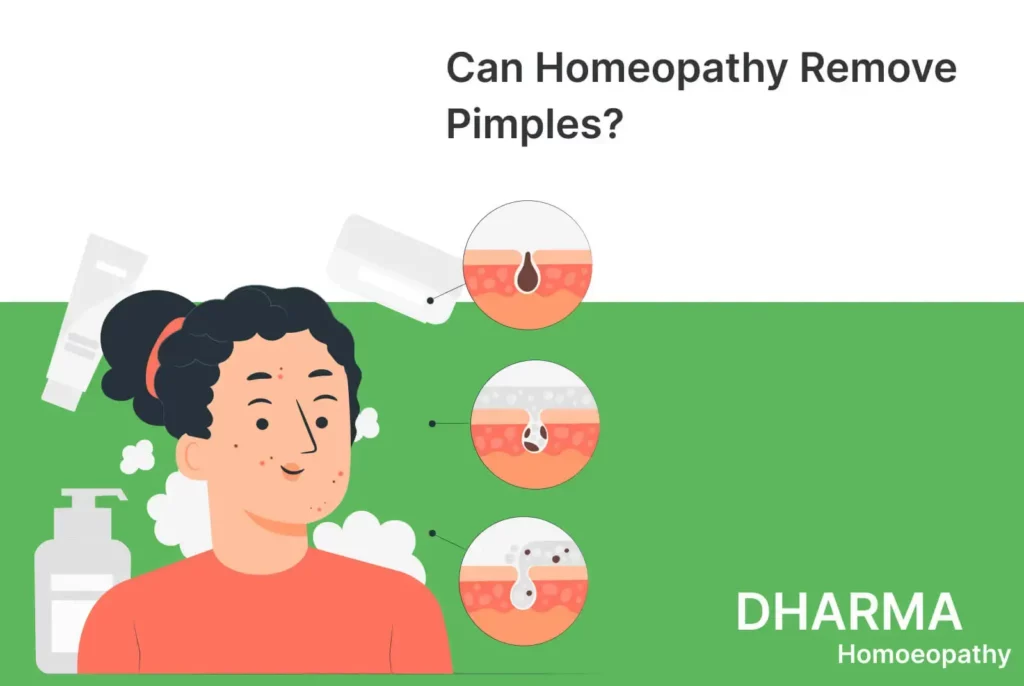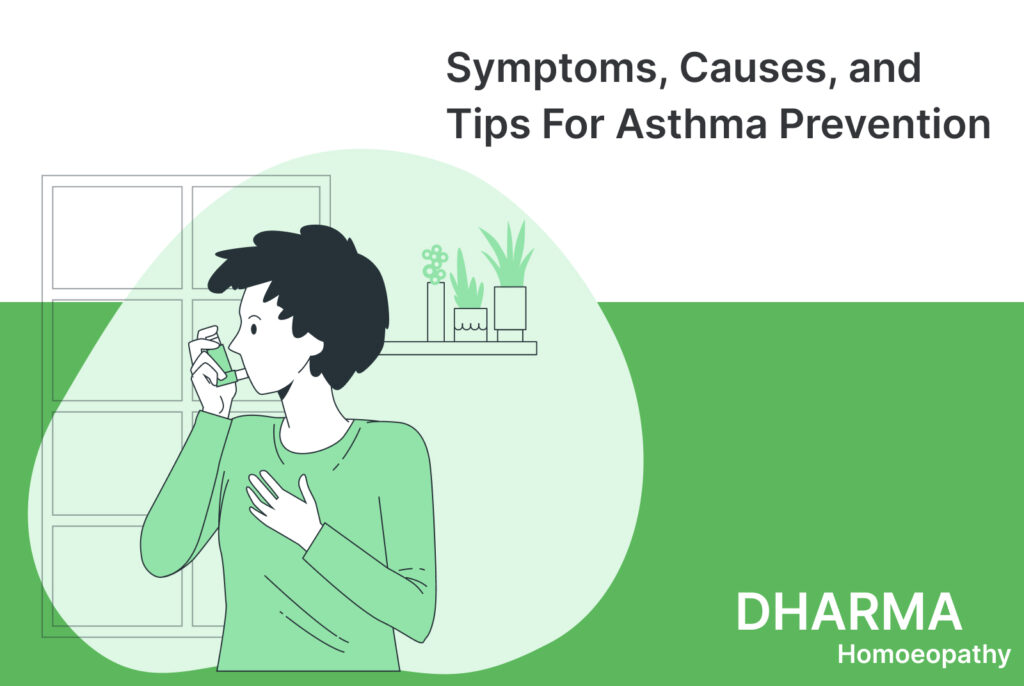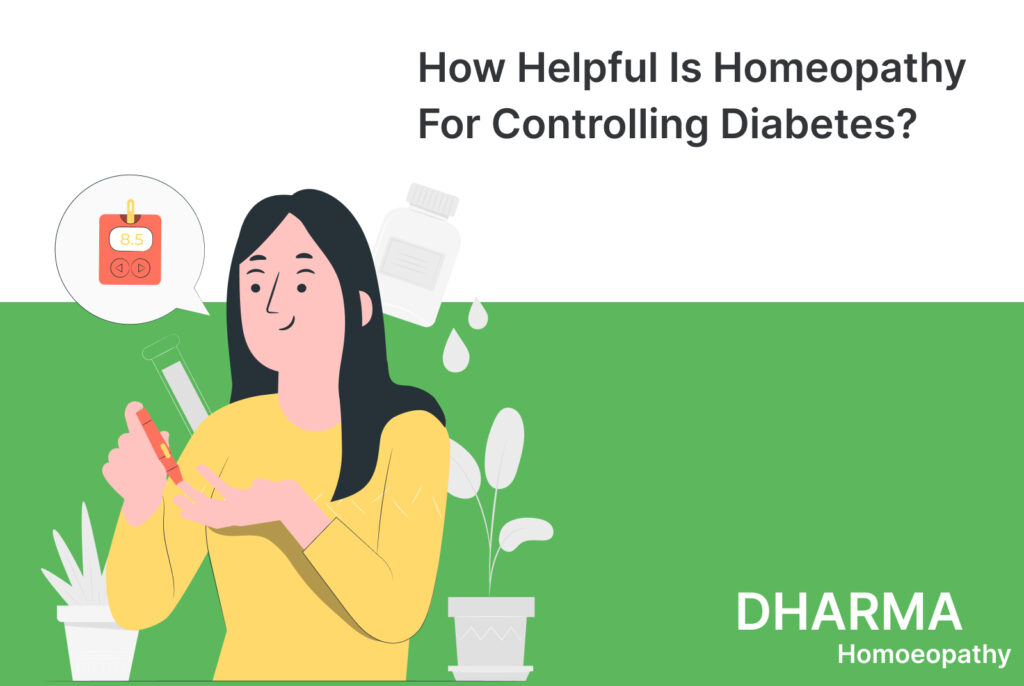Keeping blood pressure within normal limits is essential for a long and healthy life. The prevalence of hypertension is rising, thus controlling is a must. By addressing the underlying causes of hypertension, homoeopathy offers natural alternatives for blood pressure control. This blog aims to deepen your understanding of blood pressure. You will discover ways to enhance your lifestyle and take care of your blood pressure at home along the road.
A hypertensive crisis or emergency is characterized by a blood pressure reading higher than 180/120 mm Hg.
This kind of blood pressure number should prompt someone to seek medical attention.




What is Hypertension?
When the blood pressure in arteries rises suddenly for an extended period, it is referred to as hypertension or high blood pressure. Monitoring blood pressure helps assess cardiovascular health by quantifying the force the heart applies to the artery walls with each beat. The two measurements are diastolic and systolic blood pressure. According to the American Heart Association and the American College of Cardiology, blood pressure can be divided into four major categories. The optimal range is covered by a normal blood pressure result. 90/60 mmHg to 120/80 mmHg is the optimal range for a healthy heart. Any value above this indicates a hypertensive crisis, level 1, or stage 2. It is crucial to comprehend these measurements to effectively control blood pressure.| Category | Systolic Blood Pressure (mm Hg) | Diastolic Blood Pressure (mm Hg) |
| Normal Blood Pressure | Less than 120 | Less than 80 |
| Elevated Blood Pressure | 120–129 | Less than 80 |
| Stage 1 Hypertension | 130–139 | 80–89 |
| Stage 2 Hypertension | More than 140 | More than 90 |
Symptoms of Hypertension
Hypertension can cause dangerously high blood pressure readings, although most individuals don’t have any symptoms. Long periods can pass without a diagnosis of high blood pressure.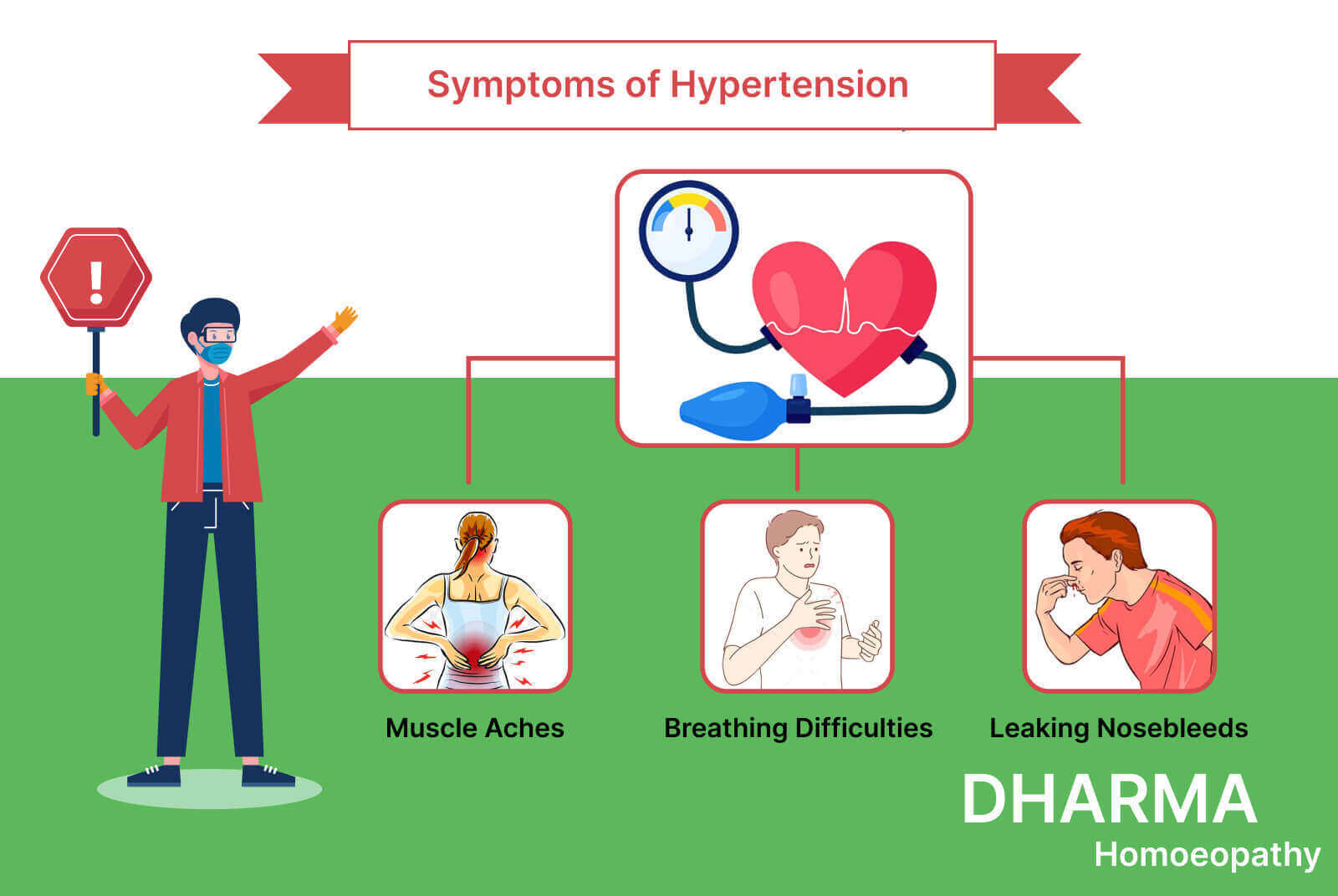
Patients with hypertension sometimes have:
- Muscle Aches
- Breathing Difficulties
- Leaking Nosebleeds
Threat of Hypertension to Your Health and Quality of Life
Your body may suffer greatly if your blood pressure is constantly elevated. If it is not managed, several issues may arise over time: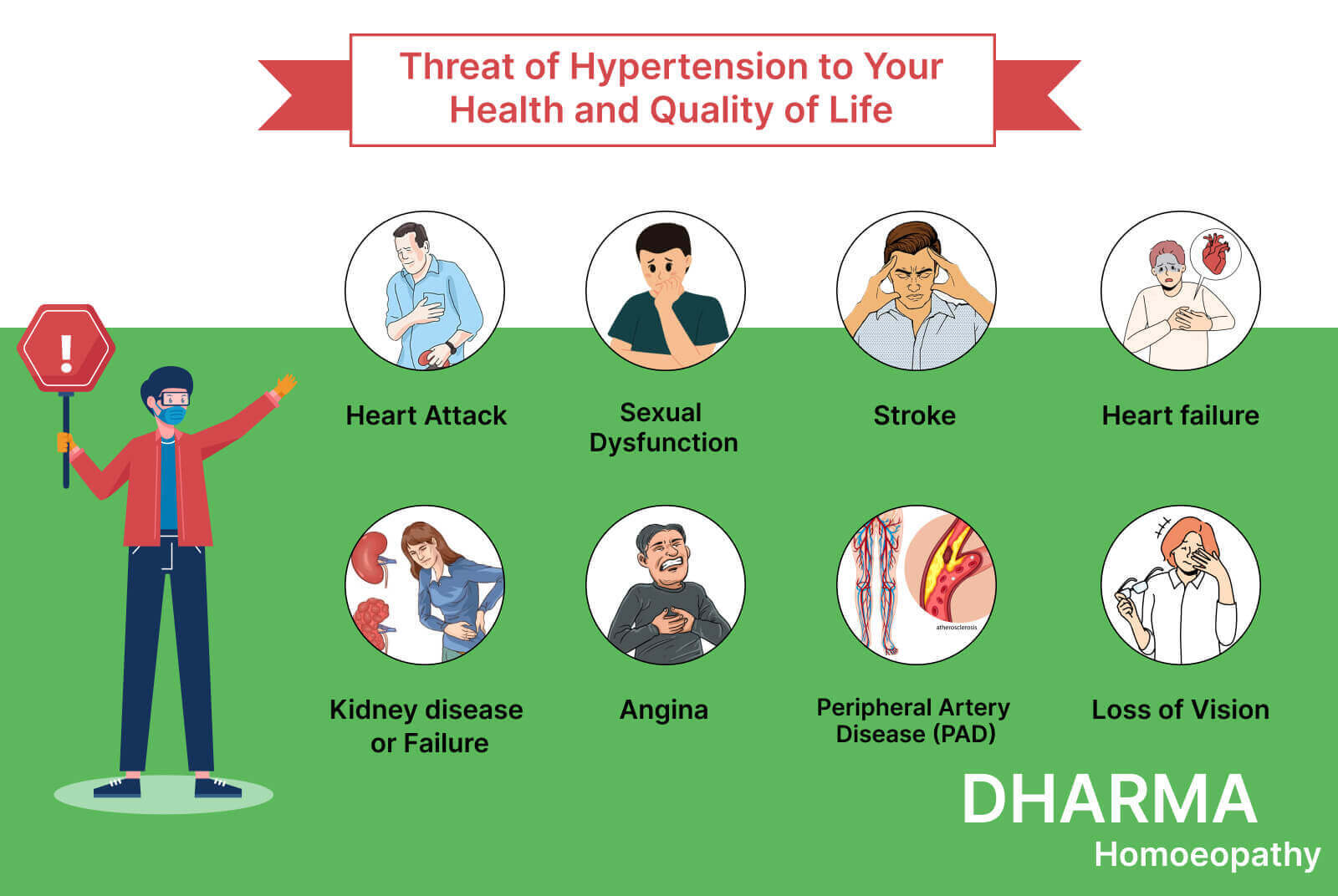
-
Heart Attack:
-
Sexual Dysfunction:
-
Stroke:
-
Heart failure:
-
Kidney disease or Failure:
-
Angina:
-
Peripheral Artery Disease (PAD):
-
Loss of Vision:
Natural Methods for Treating Hypertension
Your heart’s health needs to come first. Here are a few easy things you can do to keep your heart healthy: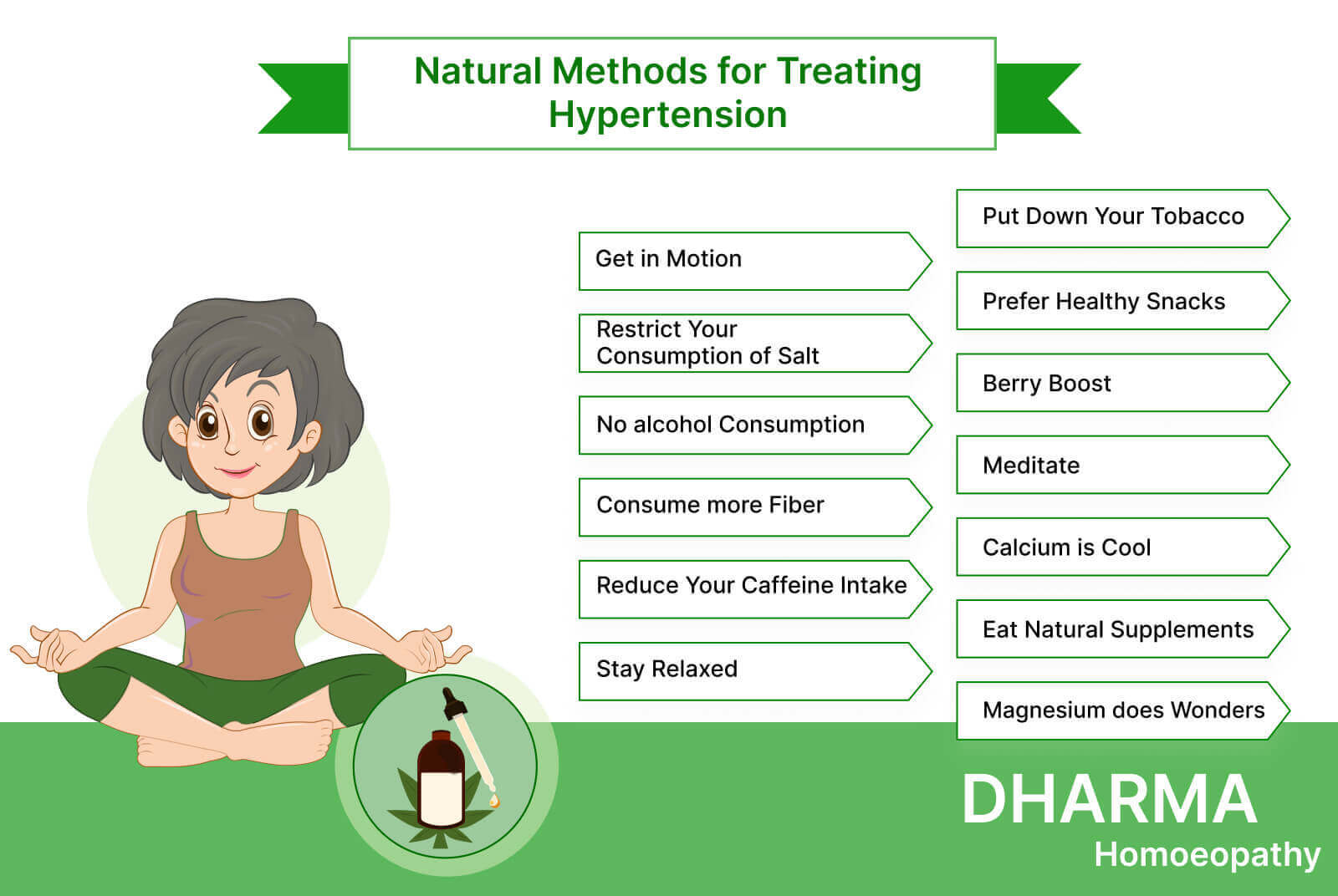
-
Get in Motion:
-
Restrict Your Consumption of Salt:
-
No alcohol Consumption:
-
Consume more Fiber:
-
Reduce Your Caffeine Intake:
-
Stay Relaxed:
-
Put Down Your Tobacco:
-
Prefer Healthy Snacks:
-
Berry Boost:
-
Meditate:
-
Calcium is Cool:
-
Eat Natural Supplements:
-
Magnesium does Wonders:
Indian herbs that Help
Maintaining a heart-healthy lifestyle entails routine blood pressure checks. Here are a few simple herbal cures: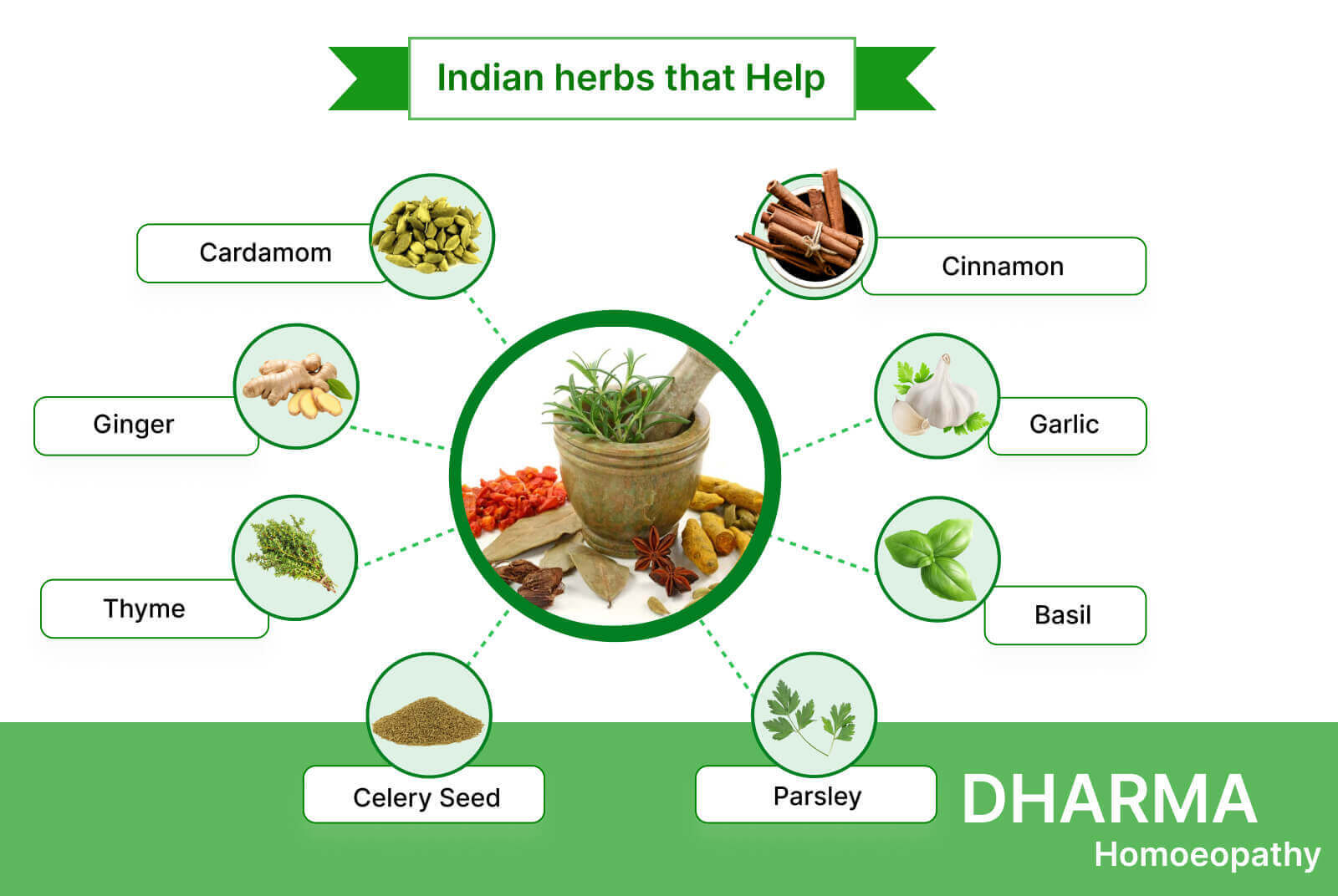
-
Cinnamon:
-
Garlic:
-
Basil:
-
Parsley:
-
Celery Seed:
-
Thyme:
-
Ginger:
-
Cardamom:
Conclusion
Maintaining a healthy blood pressure range is essential for overall well-being and health. Homoeopathy offers natural, customized blood pressure-controlling methods that address the root cause of hypertension. The use of homeopathic remedies in conjunction with lifestyle modifications, at-home blood pressure monitoring, evaluation of additional complementary therapies, and long-term support can effectively manage blood pressure and reduce issues. Take control of your blood pressure health by becoming knowledgeable about the benefits of Dharma Homoeopathy, consulting Dr. Shubham, and making an informed choice. You have to take the lead if you want to reach your wellness and health objectives.FAQs
A: It’s not unusual for high blood pressure and high cholesterol to coexist because the same behaviours that raise blood pressure also raise cholesterol. Both increase the risk of vascular disease.
A: A person’s family medical history may put them at risk for hypertension. If you have a family history of high blood pressure, your chances of developing the illness are higher.
A: Yes, it is a chronic disease and modifications to food, lifestyle, and medication can help control hypertension.


